Medical Technology
Medical technology refers to the use of advanced tools, equipment, and techniques in the field of healthcare to improve the diagnosis, treatment, and management of medical conditions. It encompasses a wide range of technologies, including diagnostic imaging devices, medical laboratory equipment, surgical instruments, and more.
Key Concepts
- Diagnostic Imaging: This involves technologies such as X-rays, CT scans, MRI, and ultrasound, which allow healthcare professionals to visualize internal structures of the body to aid in the diagnosis of various medical conditions.
- Medical Laboratory Equipment: These include tools used for analyzing blood, urine, and other bodily fluids to detect diseases, monitor health, and assess the effectiveness of treatments.
- Telemedicine: This refers to the use of communication technology to provide healthcare services remotely, allowing patients to consult with healthcare providers and access medical expertise from a distance.
- Surgical Technology: Advancements in surgical tools and techniques have greatly enhanced the precision and safety of surgical procedures, leading to improved patient outcomes.
- Robotics in Healthcare: The integration of robotics in medical technology has revolutionized surgical procedures, rehabilitation, and patient care, leading to more efficient and precise interventions.
Study Guide
When studying the topic of medical technology, it's important to focus on the following aspects:
- Understanding the various types of medical technology and their applications in healthcare.
- Exploring the impact of medical technology on patient care, treatment outcomes, and healthcare delivery.
- Examining the ethical and social implications of using advanced technology in healthcare, including issues related to patient privacy, data security, and access to care.
- Investigating the latest advancements in medical technology and their potential to address current and future healthcare challenges.
- Considering the role of medical technology in global health, including its impact on healthcare disparities and the potential for improving healthcare access in underserved communities.
By mastering these key concepts and study areas, you will gain a comprehensive understanding of the role of medical technology in modern healthcare and its potential to shape the future of medicine.
.◂Science Worksheets and Study Guides Sixth Grade. Rocks
Study Guide Rocks
Rocks  Activity Lesson
Activity Lesson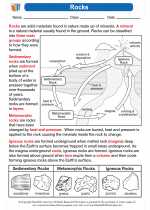 Rocks
Rocks  Worksheet/Answer key
Worksheet/Answer key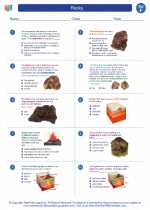 Rocks
Rocks  Worksheet/Answer key
Worksheet/Answer key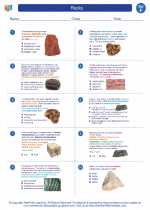 Rocks
Rocks  Worksheet/Answer key
Worksheet/Answer key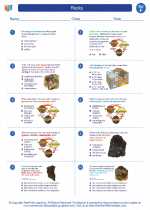 Rocks
Rocks  Worksheet/Answer key
Worksheet/Answer key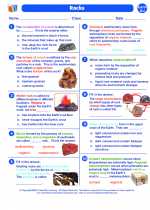 Rocks
Rocks  Vocabulary/Answer key
Vocabulary/Answer key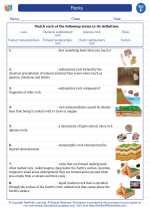 Rocks
Rocks  Vocabulary/Answer key
Vocabulary/Answer key Rocks
Rocks  Vocabulary/Answer key
Vocabulary/Answer key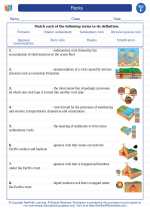 Rocks
Rocks 

 Activity Lesson
Activity Lesson
 Worksheet/Answer key
Worksheet/Answer key
 Worksheet/Answer key
Worksheet/Answer key
 Worksheet/Answer key
Worksheet/Answer key
 Worksheet/Answer key
Worksheet/Answer key
 Vocabulary/Answer key
Vocabulary/Answer key
 Vocabulary/Answer key
Vocabulary/Answer key
 Vocabulary/Answer key
Vocabulary/Answer key

The resources above cover the following skills:
EARTH AND SPACE SCIENCE
Earth’s Systems
Plan and carry out investigations that demonstrate the chemical and physical processes that form rocks and cycle Earth’s materials (e.g., processes of crystallization, heating and cooling, weathering, deformation, and sedimentation).